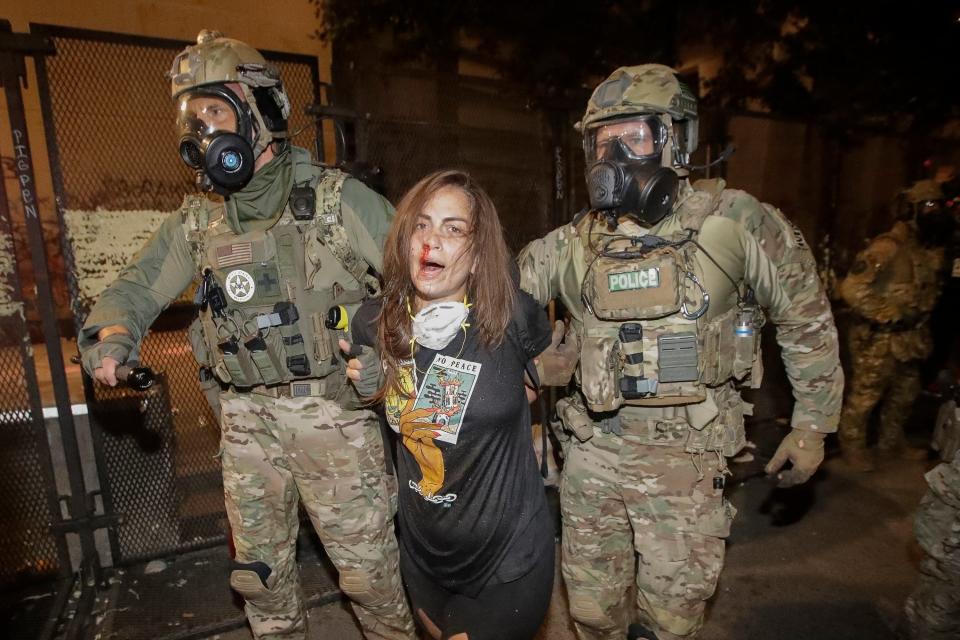New bill would prohibit police in Pennsylvania from wearing military-style fatigues

A lawmaker in Pennsylvania is trying to outlaw the use of military fatigues by police officers in the state through the introduction of a new bill.
Pennsylvania State Rep. Brian Sims announced Thursday that he will introduce a bill into the state's legislature that would prohibit police officers from using military fatigues while working.
"PA has no law that prohibits police from wearing military-style fatigues. As we saw in Portland in 2020, this is confusing and dangerous for anyone who is peacefully protesting. I’ve got a bill to ensure that this never happens in the Commonwealth," he said.
Mr Sims said the use of fatigues by police officers caused widespread confusion and obfuscated which law enforcement entities were engaged in violent acts toward protesters during the George Floyd demonstrations in 2020.
"Images and video from Portland showed these agents, in military-style uniforms, engaging in violent behavior around demonstrators. Confusion on the streets, instigated by this behavior, left many demonstrators concerned that the military had been turned against the citizenry," he said.
The lawmaker pointed out that there was no law in Pennsylvania outlawing the use of such fatigues by law enforcement, and said his bill would prevent any future use of the uniforms.
"In PA there is no law that allows the use of militarized uniforms by municipal or state law enforcement. Considering the events that took place in Portland, it's imperative that our citizens are able to distinguish b/w a member of the military and a law enforcement officer," he said. "Therefore, I am introducing legislation that would prohibit the use of camouflage and military-style fatigues by local, municipal, and state law enforcement."
Police reform activists have pointed to the use of military fatigues and armored vehicles by police forces as evidence of their increased militarisation.
Retired Lieutenant General Mark Hertling wrote about the necessary distinctions between police and the military in an op-ed for The Washington Post in the wake of the Portland protests in which unidentified, fatigue wearing law enforcement agents detained, interrogated, and beat protesters.
Mr Hertling discussed his time training police forces in Iraq during the 2007-2008 "surge," and expounded on the differences between law enforcement organisations and the military.
"First, while soldiers and police both “bear arms,” a police officer’s main goal wielding a weapon is to keep the peace, control the population and apprehend criminals. Professional militaries, on the other hand, vow to defend nations; they use weapons to threaten, intimidate and kill adversaries. Great police forces, the MP commander emphasized, are trained in ways to be less threatening, so they can protect and serve their communities while also apprehending criminals," he said.
He noted that some police units, like SWAT teams, are trained in the use of military weapons and tactics, their use should be saved for only dire situations and that overuse or misuse of these very specific units can cause a department to "lose the trust of the citizens that the police are asked to protect and serve."
Ultimately, he concluded that "security forces — police and military — belong to unique and different professions, each critically important, each with a distinct culture," and said a clear distinction had to be maintained.
"Specific training, uniforms and accountability to standards — for deadly actions on foreign battlefields or keeping the peace on the streets of our nation — are geared to radically different missions, and they are not interchangeable in any functioning democratic society," he wrote.
Read More
New conservative group would save 'Anglo-Saxon' traditions
‘America First’ platform calls for ‘respecting Anglo-Saxon traditions’

 Yahoo Finance
Yahoo Finance 